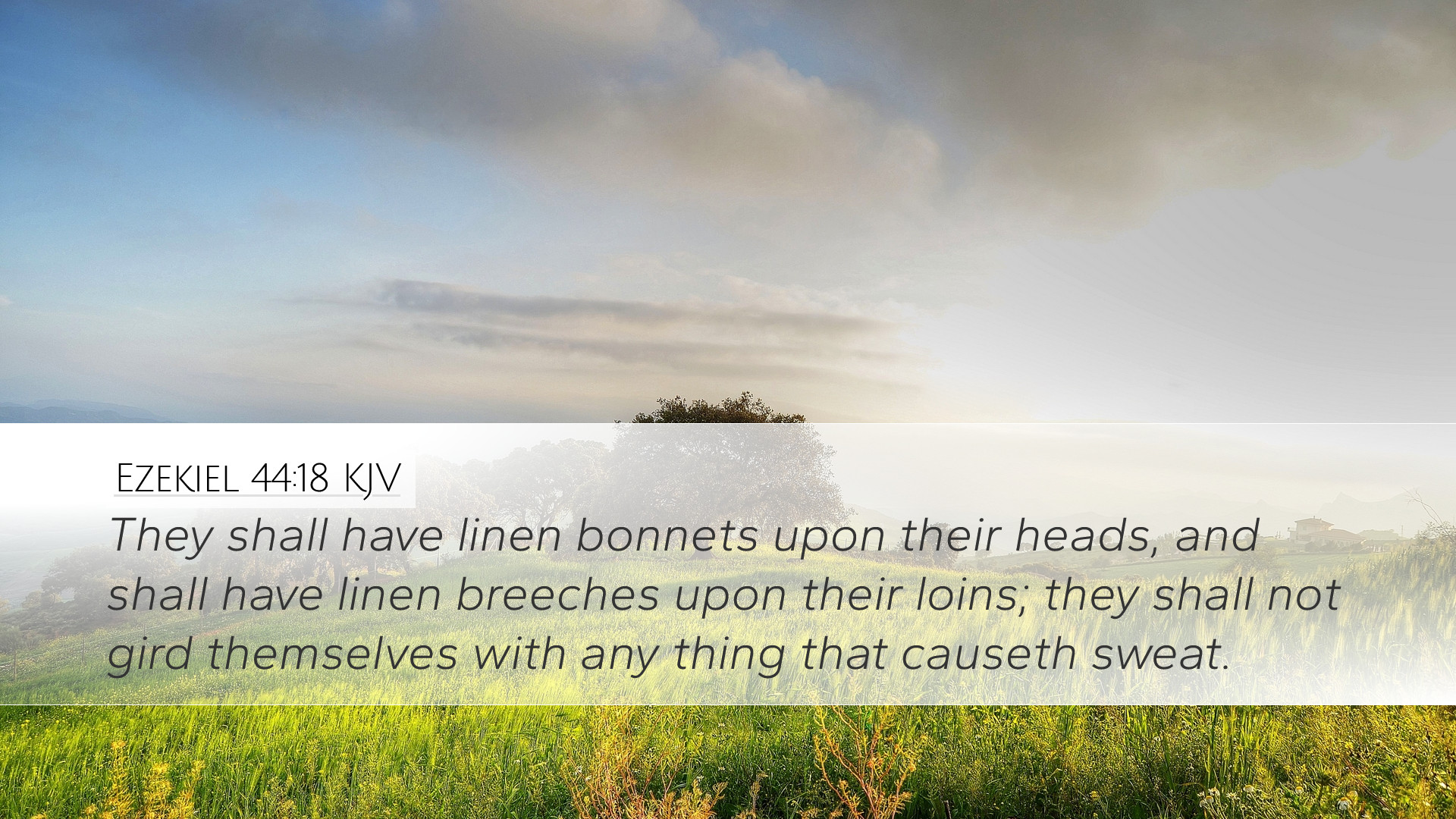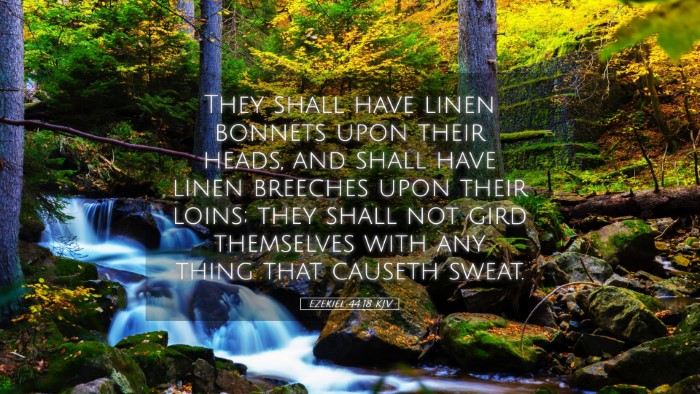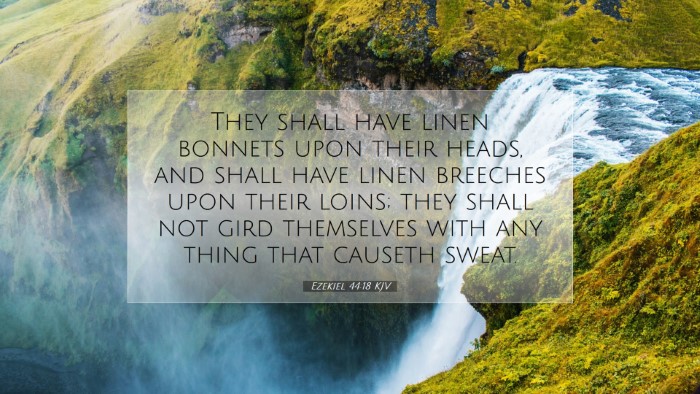Bible Commentary on Ezekiel 44:18
Ezekiel 44:18 states, "They shall not gird themselves with anything that causes sweat." This verse refers to the regulations assigned to the priests of the temple, emphasizing their sacred duty and lifestyle as they serve in the presence of God. Below, we explore the significance of this verse combined with insights from notable public domain commentaries.
Contextual Overview
The Book of Ezekiel, a major prophetic work, deals with themes of judgment and restoration. Written during the Babylonian exile, this book provides a deep look into God's expectations of holiness and righteousness. Ezekiel 44 specifically addresses the responsibilities and privileges of priests in the new temple.
Commentary Insights
Matthew Henry’s Commentary
Matthew Henry emphasizes the holiness required of priests as representatives of God's people. He notes that the command against sweating symbolizes the absence of human toil in sacred service. The priests must appear dignified and free from worldly burdens when performing their duties. This reflects the idea that true service to God should be approached with reverence and spiritual liberty, leaving behind the concerns that often plague everyday life.
Albert Barnes’ Notes on the Bible
Albert Barnes elaborates on the details of priestly attire and behavior. He interprets the prohibition of girding oneself with anything causing sweat as indicating that the priests should not engage in work that is burdened or toilsome. This aspect highlights the distinction between the sacred and the secular. Barnes correlates this concept with the notion that the priest's role is to approach God without the distractions of earthly labor. This also speaks to the necessity of a divine focus, where the priests cannot allow mundane tasks to divert their attention from their spiritual obligations.
Adam Clarke’s Commentary
Adam Clarke focuses on the significance of the physical symbolism found in the attire and actions of the priests. He highlights that the act of fulfilling priestly duties must be grounded in a spirit of restfulness and peace, contrasting with the strain and stress represented by sweat. Clarke expounds on the inherent dignity of divine service, urging ministers and leaders to approach their responsibilities free from worry and distraction. For Clarke, this not only applies to priests but serves as a broader reminder for all believers about the importance of focusing on the Lord without the interference of life’s weighty concerns.
Theological Implications
This verse extends beyond the immediate context of the Old Testament priesthood. The implications resonate with New Testament believers, encouraging them to serve with integrity and without distraction. The call for spiritual leaders today is to exemplify a life characterized by divine grace and dedication without succumbing to the secular pressures that often lead to burnout.
Priestly Representation and Spiritual Duty
The priesthood, as laid out in the Old Testament, serves as a type and shadow of the ultimate Priest, Jesus Christ. The perfect High Priest modeled a life of devotion, sustaining a divine appointment free from the encumbrances of sin and worldly concern. The admonition for modern-day priests and believers to refrain from sweat symbolizes reliance on God’s strength and provision, illustrating that true ministry springs forth from a place of divine empowerment rather than human effort.
Practical Applications
- Spiritual Focus: Leaders should prioritize their relationship with God, ensuring their service is filled with spiritual vitality.
- Overcoming Weariness: The idea of not sweating can be interpreted as a reminder for leaders to rest in Christ, who provides the necessary strength for ministry.
- Holiness in Service: This verse challenges all believers to uphold holiness in their lives and conduct, reflecting the sacredness of their calling.
- Divine Empowerment: Understand that effectiveness in ministry does not come through personal effort, but through relying on God’s grace and power.
Conclusion
Ezekiel 44:18 serves as a timeless reminder of the holiness and dedication required of those who serve in God’s name. The insights drawn from Matthew Henry, Albert Barnes, and Adam Clarke illuminate rich theological principles that transcend time, urging believers to approach service with a posture of reverence, strength derived from divine sustenance, and a commitment to holiness that reflects God’s character and purpose. May this understanding enrich the faith and practice of pastors, theologians, and all who seek to follow God's calling.


